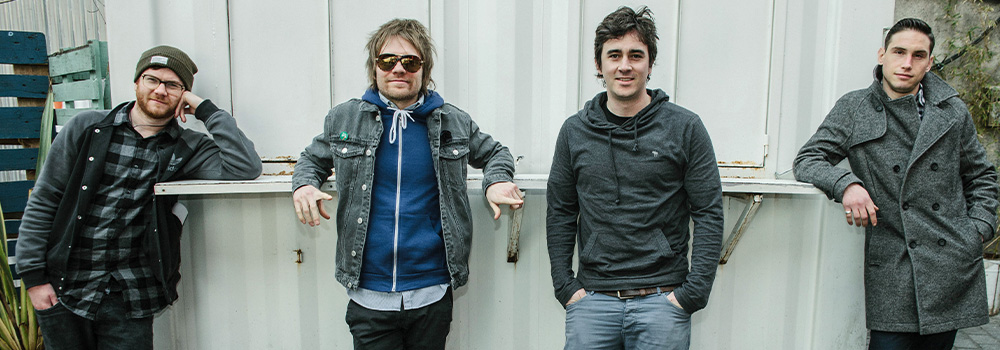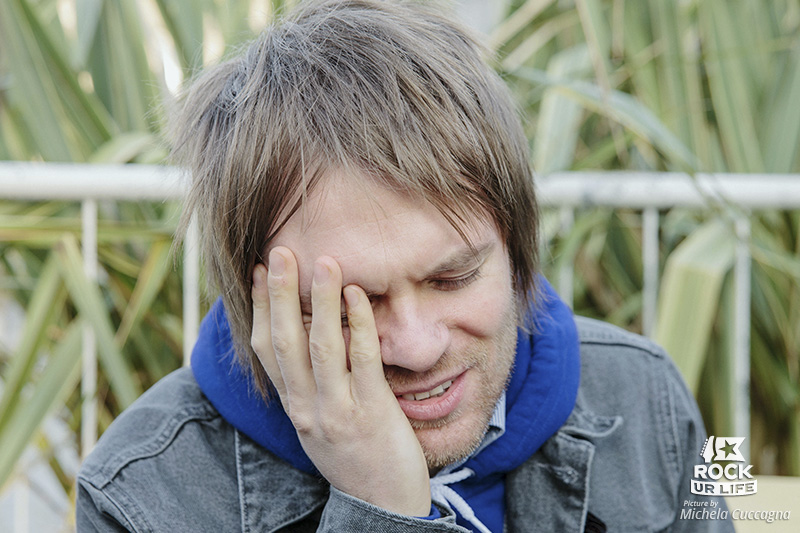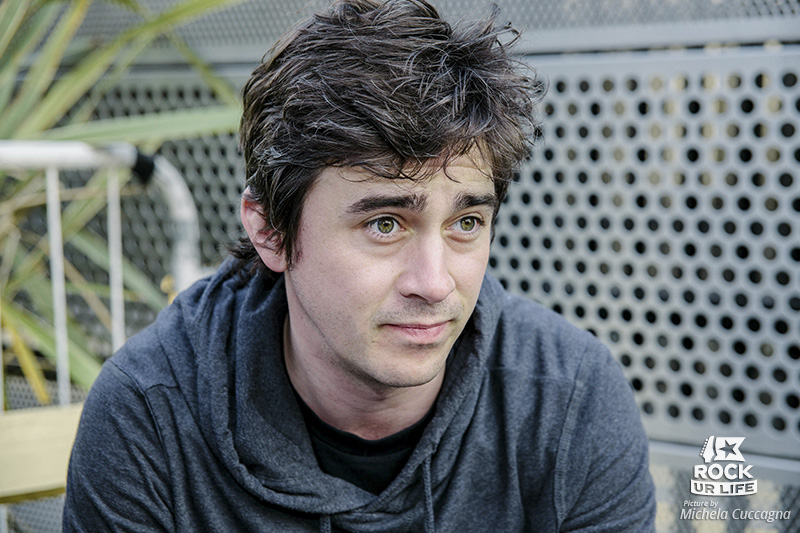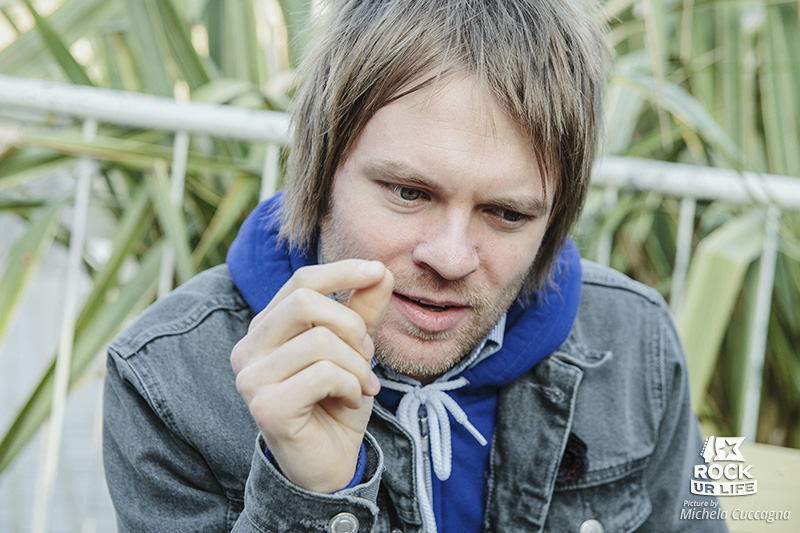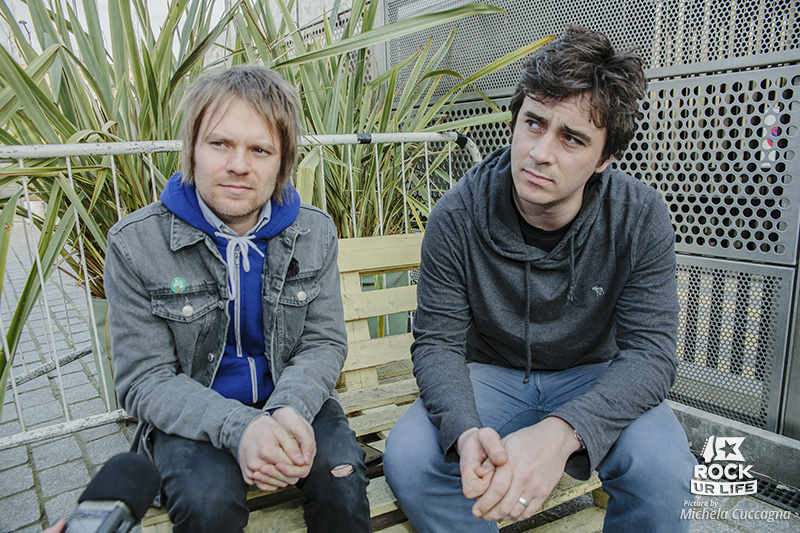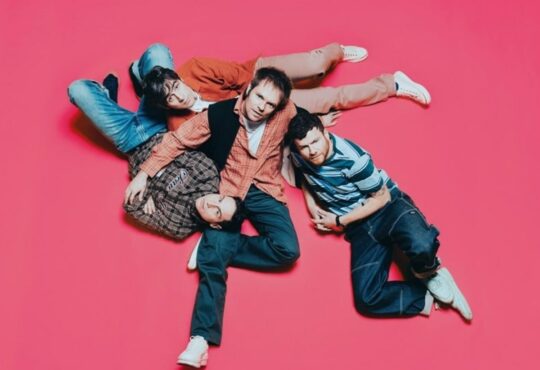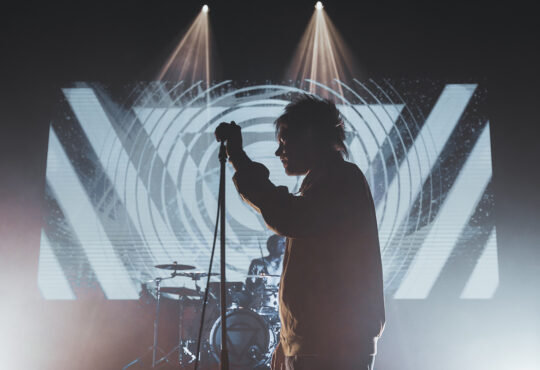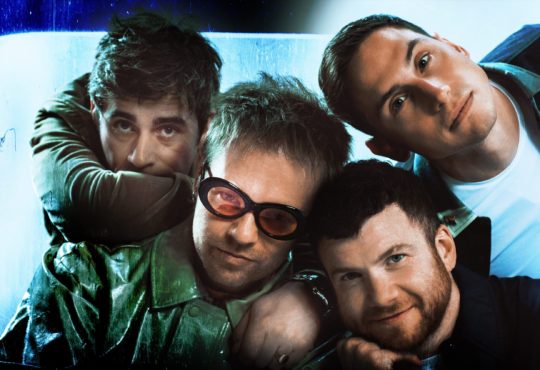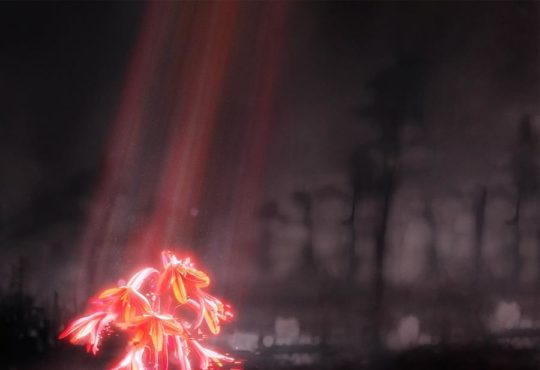Just before their show in Paris, RockUrLife met Rou and Batty C from Enter Shikari. We discussed tour, censorship, economics, and more.
First, how are you doing? You’ve been touring for quite a while now, you must be exhausted!
Chris “Batty C” Batten (bass): (laughs) I think we’re alright! We had a little gap between the UK shows and the rest of Europe, a little bit of time off, so we charged the batteries, and we’re good to go again.
You have tour dates schedueled until next August, are there more coming after that?
Rou Reynolds (vocals/guitar/synth): Not really, that’s kind of the end of that era. We don’t even have that many festivals actually, we like to take it easy, kind of blend it down. We might be going to Australia some time around there, like September or something. But that’s it really, then we’ll be going back in the studio.
Do you already have some ideas about what you’re going to do in the studio?
R: Yeah, little demos actually! (laughs)
You’ve played all around the world already, is there some place you’ve never played in you’d like to go?
B: Yeah, I’ve been talking to a guy from Mexico yesterday, and he was asking why we never managed to play in South America, and yeah, we’ve never played any shows there, and that’s something we hope to change for example!
Have you ever had any trouble playing somewhere because of your political engagement?
R: Not really, there’s nothing that comes to my mind. There’s a couple of points where we felt a bit worried, anxious maybe. We had some gigs in Russia, right in the middle of the whole Pussy Riot thing. And we’d support them on stage, on festivals, all across that summer, it was two or three years ago. And then we got reported on Russian state TV, on the news, with a few other bands. So we were like “oh shit”. That was a bit strange. We also played in Malaysia, a very strict religious country, and we thought we’d have to be very careful there but it was fine. I think that’s because we’re still like an underground band, and we just have the occasionnal time when we sort of poke our heads out into the mainstream. (laughs)
What would you do if, someday, one or a few of your songs were censored in a country? We know that a few bands have been censored in China, for example. Would you play the shows anyway?
R: I don’t know. We’ve never really face it. I don’t know what you do in these situations. I don’t particularly want to go to jail in China (laughs), but at the same time you don’t want not to play music, especially if you have fans there. So I’d probably just not sing that lyrics.
What about the UK? Since the government is very conservative, have you ever faced initiatives from them to try and sabotage alternative cultural events? We had a few things like this in France.
R: Not that I can think of, but I think that’s a direction we’re going to. What they’re planning to do right now is to change the law so that the board that controls the BBC can be picked by gouvernment authorities. So it will become a proper state broadcaster just like Russian TV, or in China. So yeah, that’s the direction we’re heading to.
Does that kind of climate shape the lyrics you write in some way?
R: Yeah, it’s a big influence. We were talking to a band in the UK called The King Blues, and they just got back together beacuse of politics and our government right now. So yeah, it can be a great inspiration. But I think our music is inspired by so many different things. It’s not always angry, we’re big hippies as well (laughs) so we’re all about peace and love!
You always write about so many political themes, are there also more personal topics that inspire you?
R: Oh yeah! I usually don’t differenciate between the political and the personal actually. Because every experience triggers an emotion, and then it becomes personal. Most of our lyrics are quite abstract, you know, they’re tackling these big wide concepts, so I’m almost influenced more by philosophy than politics. It’s all about stepping back and getting perspective. But yeah, as I said, it’s one of music’s main purposes to trigger emotions.
Do you try to send emotions in particular (to the people who are going to listen) when you write or compose?
B: I think we know quite early what kind of emotion is coming from the song, and then that will lead us to what we want to do with it, or what Rou wants to write lyrics about. So the emotion that we’re getting from the song normally leads to what’s the song is going to be about.
R: (thinks) Music is the only dictator that we…
… respect and obey? (ed: as a reference to the “Hello Tyrannosaurus, Meet Tyrannicide” lyrics)
R: Yes! (They both laugh)
One more question about politics: in a recent interview, you said that the root of most of nowadays problems is actually capitalism itself. What do you guys think of the alternatives we hear more and more of, such as the Universal Income? It’s going to be tested in Finland soon.
R: Yes, it’s awesome! I think there are a few cities in Holland where they’ve tried it too. I think it’s imperative that we head it that direction. The progression of technology is just taking away jobs, and it always has done! People used to work in agriculture, mecanics, and it took all of that over. And so the service sector was kind of the last one that was there. And then we’ve seen bank clerks being replaced by machines, and restaurants, and everything else. So there are not that many areas where jobs can still be growing, which should be viewed as a good thing, but it’s not, because we still live with this philosophy that you must work to deserve your income. But what it should be doing is freeing people to be more creative, artistic, have time for research, you know, the things that we still have problems with in our society. And it’s because we’re in this very difficult mindset and we can’t seem to shrug off. So yeah, I think the Universal Income is the most sane way forward.
Back to the gigs topic, there’s something interesting with Enter Shikari: you have very vehement lyrics, very incisive music, but then your shows are always very festive. How do you explain that?
B: I think we try not to take ourselves to seriously in the live shows. We want people to come and just enjoy themselves, that’s the kind of environment that we want to create. That’s the way we’ve always thought live shows should be so it’s just a representation of ourselves I guess. (laughs)
R: Yeah, it’s all about celebrating community, which is probably the one thing that has been there from our first album until now. This unity, and the fact that music has been bringing people together for thousands of years, to celebrate being alive.
One last question: our website is called “RockUrLife”. So our traditionnal question is, what rocks your life?
R: (thinks) The happiest point to me in the last 24 hours has been eating a wholemeal baguette with balsamic vinegar, olive oil, and a bit of salt. It’s just… so simple but so good! I was like “just one slice, okay one more” and I litterally had four slices of bread! This is rocking my life.
B: Yeah, eating is definitely something. (laughs) Just before I came out here yesterday, I had a chocolate and pear tarte. It was delicious. So yeah, essentially food. That rocks our world.
Website: entershikari.com



